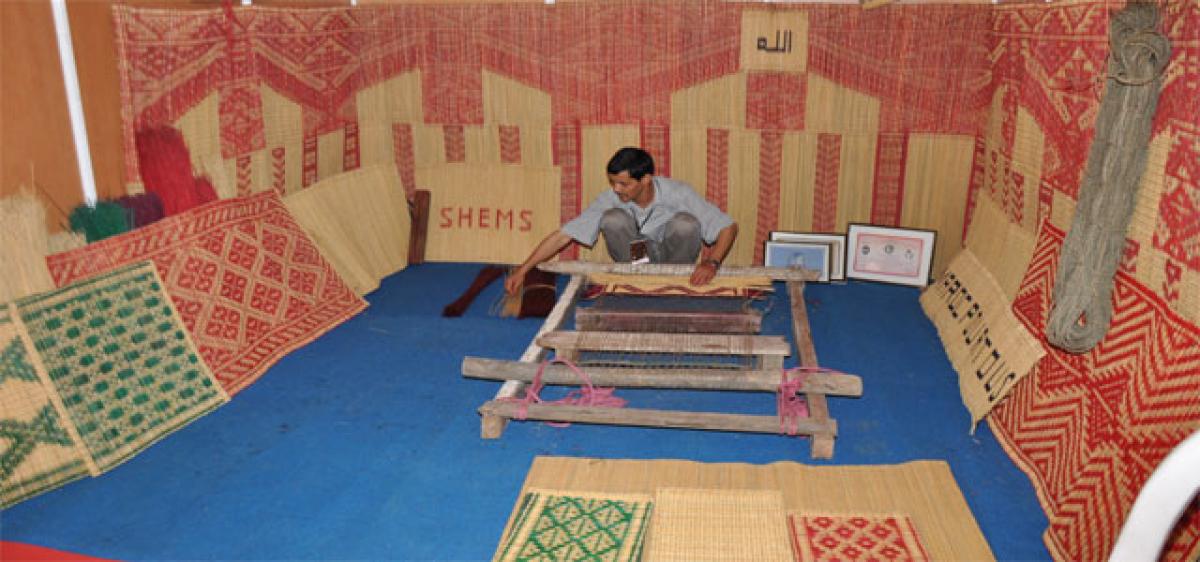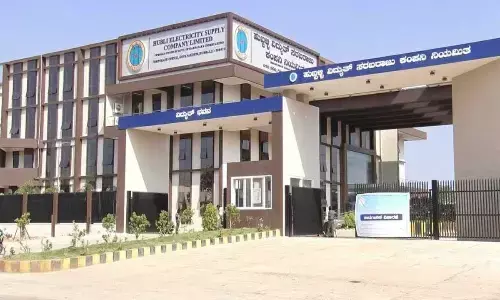Famous Eluru crafted carpets on the verge of extinction

Carpet weaving units in the city are in dire straits with their number decreasing from hundred to just two. This is attributed to increasing cost of raw materials, competition from state-of-the-art readymade carpets and meager revenue from weaving carpets.
Centuries-old weaving industry in doldrums
Eluru: Carpet weaving units in the city are in dire straits with their number decreasing from hundred to just two. This is attributed to increasing cost of raw materials, competition from state-of-the-art readymade carpets and meager revenue from weaving carpets.
The carpet weaving units which had employed workers in thousands during their heydays are today not able to provide jobs to even 10 workers. The two units which hitherto survived many odds are on the verge of closure.
Faced with this fate, carpet weavers are looking for alternative vocations and eking out a livelihood by working as casual labourers. Earlier, women who used to weave carpets at home and earn money are now they are deprived of this source of livelihood.
A woman worker said that depending on the size of the carpet, it would take at least two days to 15 days to weave a carpet. The worker is hardly able to get Rs 100 per day by weaving a carpet. Therefore, they are not coming forward to weave carpets.
Carpet-weaving is a 400-year-old industry in the district. The carpets woven here are exported to the USA and Australia. The industry origin is traced to the advent of Persians, who were rehabilitated in Andhra Pradesh.
The Persians started the carpet weaving industry with Tangellamudi in Eluru as their Center. As Tangedu flowers (Cassia auriculata) are very useful in dyeing the carpets, the Persian immigrants set up their units here.
The carpets woven in the city became famous across the world. The units located at Sanivarapupeta, Tangellamudi and Lakshmivarapupeta were providing livelihood to at around 2,000 persons. The workers used to earn handsomely and also trained their wards in the art. But the conditions have now totally reversed.
Till a decade ago, carpet industry flourished in the city. But the industry is on the verge of extinction because of lack of patrons. There is no difference in the quality, but the conditions are not favourable. Those who are dependent on carpet weaving are in doldrums and eagerly awaiting succour.
People are amazed at the quality of the carpets produced in the city. Wool is imported from Rajasthan and cotton from Coimbatore. The carpets are woven in dazzling designs and marketed. According to an artisan, the carpets are made manually.
No machinery is used in their making. The life of a carpet is at least 20 years. In sharp contrast to the hand-woven carpets, the artificial carpets are deficient in quality and colour patterns. They are sold at a cheaper price in the market.
The competition from the low quality goods has spelt the doom of the centuries-old industry. The hand-woven carpets continues to be popular and in demand in export-markets. But since the selling price is very high in the overseas market, the returns on carpet works out to a pittance.
The pathetic condition of the carpet industry is attributed to the apathy of the government in resurrecting the industry. Government intervention in the form of loans and training to artisans is required to resuscitate the industry and nurse it back to health.
By M Seshu Kumar










